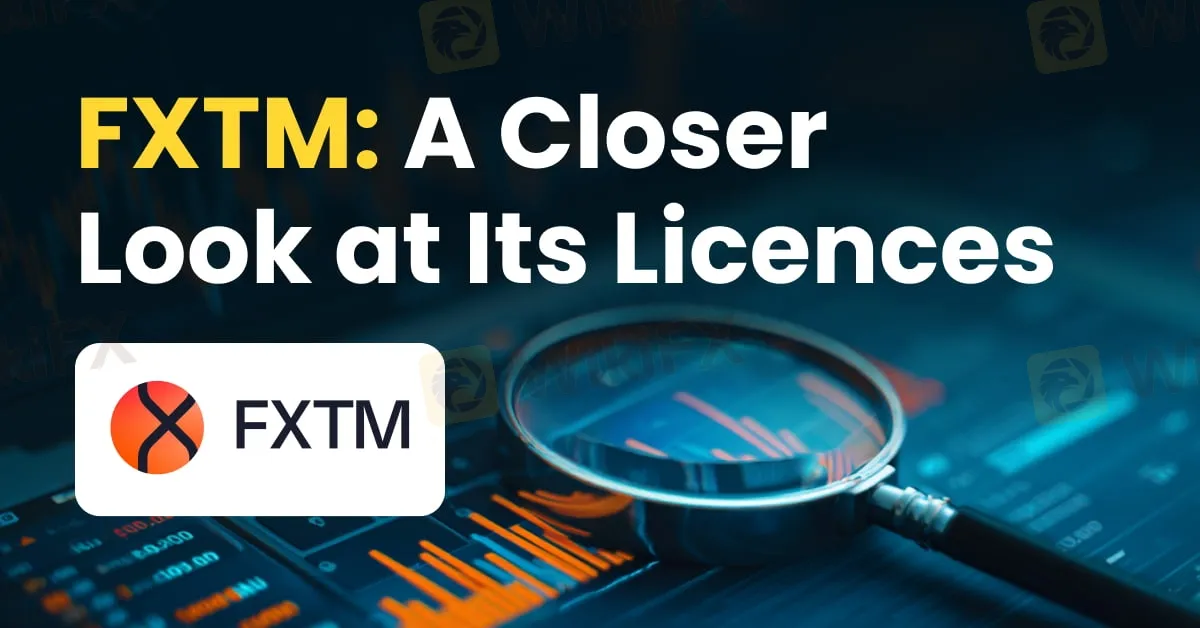FXTM: A Closer Look at Its Licences
Abstract:Choosing a trustworthy and properly licensed broker is one of the most important steps for anyone looking to trade online. FXTM, also known as ForexTime, is an international broker that holds several licences from different financial authorities. But what do these licences mean in practice, and how safe is it to trade with FXTM?

Choosing a trustworthy and properly licensed broker is one of the most important steps for anyone looking to trade online. FXTM, also known as ForexTime, is an international broker that holds several licences from different financial authorities. But what do these licences mean in practice, and how safe is it to trade with FXTM?
According to WikiFX, a global broker evaluation platform that looks at regulation, trading environment, risk control, and business operations, FXTM currently holds a WikiScore of 7.50 out of 10. This score indicates that the broker meets a reasonable level of trust and professionalism, but it also means there are important details traders should consider before signing up.

One of the most significant licences held by FXTM is from the United Kingdoms Financial Conduct Authority (FCA). Under licence number 777911, FXTM is registered as a Straight Through Processing (STP) broker. This means that trades are passed directly to liquidity providers, rather than being handled internally, which can reduce potential conflicts of interest. Being regulated by the FCA is a strong indicator of credibility, as the authority is known for its strict standards on client protection, transparency, and financial conduct.

FXTM is also regulated by the Financial Services Commission (FSC) of Mauritius, under licence number C113012295. This licence allows FXTM to offer trading services to clients outside of Europe, including retail forex trading. While the FSC is a recognised financial authority, it is often viewed as having a more flexible regulatory environment compared to European regulators. This means traders should still carry out their own checks and understand the protections they are end to under this licence.

In South Africa, FXTM is registered with the Financial Sector Conduct Authority (FSCA), holding licence number 50320. This allows the broker to operate legally and provide financial services within the country. However, the licence is listed as a Financial Service Corporate under “general registration,” which may not necessarily include the full range of forex trading services for individual retail clients. As such, traders in South Africa should be careful to confirm which services are covered by this registration before opening an account.

Overall, FXTM appears to be a regulated broker with a good level of oversight in major regions. Its WikiScore of 7.50 reflects a solid balance between global reach, regulatory status, and trading conditions. However, the strength of regulation can vary depending on which regional entity a trader is working with, and thats an important detail that should not be overlooked.
While FXTM is regulated and generally well-rated, its always wise for traders to do their own research and make sure they fully understand the terms and protections tied to their chosen account. Regulation is an important part of broker safety, but informed decision-making remains essential in the fast-paced world of online trading.

Read more

Yen Rebounds! Is This the Opportunity Investors Have Been Waiting For?
The Japanese yen has staged a sharp rebound, breaking below key technical levels against the U.S. dollar. With diverging central bank policies, heightened risk sentiment, and a shifting macro backdrop, is this a real opportunity—or a trap?

VIPS Group of Companies Exposed: ED Seizes Assets in 100-Crore Ponzi Forex Scam
The Enforcement Directorate (ED) has cracked down on an INR 100-crore scam involving illegal forex trading and Ponzi schemes by seizing immovable assets and digital devices besides freezing bank accounts across multiple cities in India. Read more.

Foraxi Joins the WikiFX Family
Explore how the addition of Foraxi to the WikiFX family opens up forex trading growth avenues for traders around the world.

Iran’s Strait Strategy: Is the World Ready for $100 Oil?
Tensions in the Middle East are rising quickly, and global oil markets are already feeling the pressure. Since Iran and Israel entered open conflict, oil prices have jumped from around $60 to nearly $80 per barrel. Now, with the United States joining the fight and launching strikes against Iran, the situation has become even more serious. Iran’s threat to seal off the Strait of Hormuz could ignite a global energy meltdown, spike oil prices beyond $100, and unleash economic chaos across the world.
WikiFX Broker
Latest News
Top Wall Street analysts like these three stocks for long-term growth
Dow futures slide 150 points as oil rises following U.S. bombing of Iran: Live updates
Asia-Pacific markets set to open lower as U.S. bombing of Iran escalates Middle East crisis
Oil at $100 a barrel? U.S. role in Iran-Israel fight fuels market jitters
Consob Blocks 7 Fraudulent Investment Websites Amid Ongoing Crackdown
MyFundedFutures Tightens Compliance Measures Following Regulatory Pressure
Investors Beware! The Pound May Face a Downturn in the Second Half of the Year
European markets start the week lower as Middle East crisis worsens
Latest FCA Warning List Out! Beware & Protect Your Money
European defense stocks sell-off intensifies after U.S. hits Iran
Rate Calc

